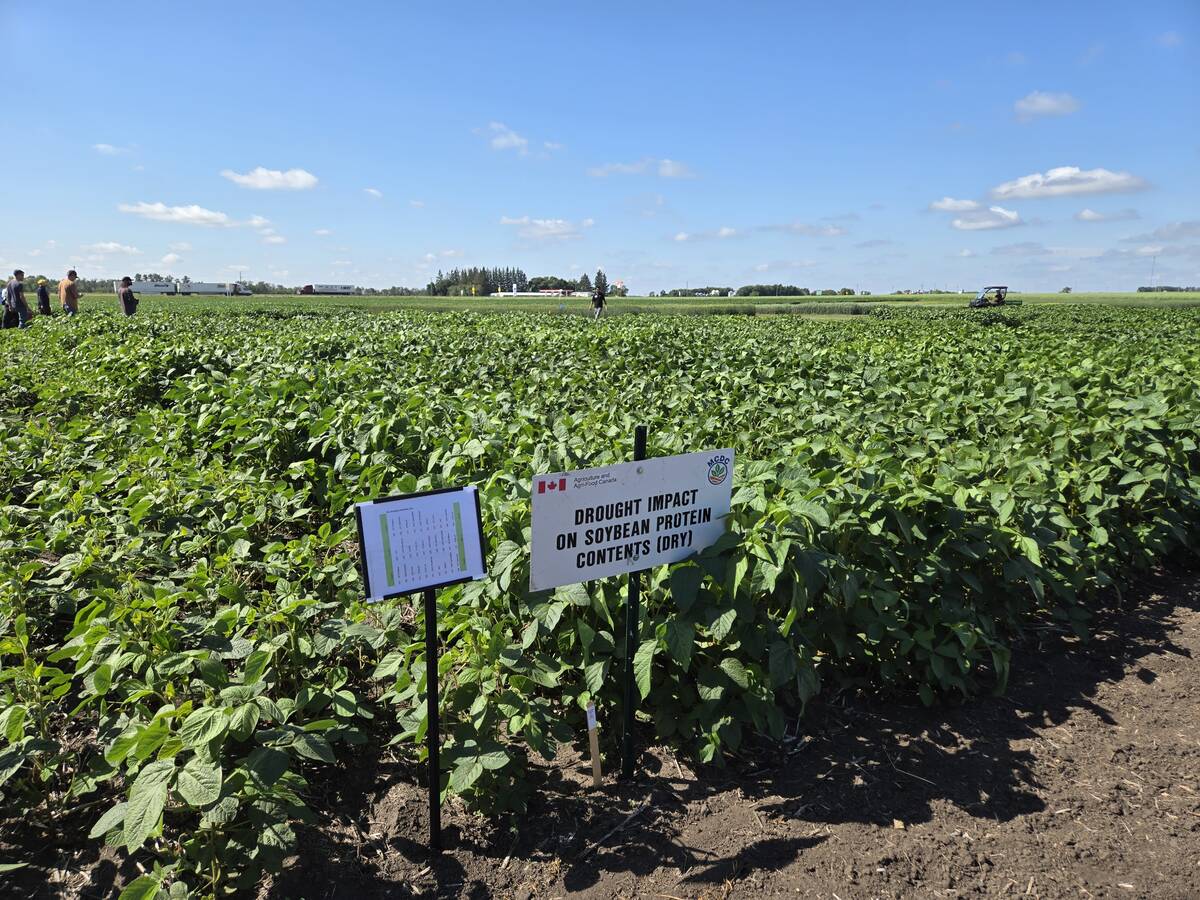LOWER MONTAGUE, P.E.I. – Joan Perrin is completely at home in her
cottage along the Prince Edward Island coast, discussing farming, tides
and tourism.
She moved there in April, after spending the last 20 years in
Saskatchewan.
A spontaneous purchase last summer took Joan and her husband, Bob, back
to the Maritimes where they grew up.
They were in Charlottetown for the Canadian Cattlemen’s Association
meeting, when it rained and Bob’s tee time was cancelled. He decided to
Read Also

Carberry field day looks for agriculture solutions
Manitoba farmers explored research solutions for resilient crops, perpetual agronomic issues and new kinds of agricultural products at a field day at the Manitoba Crop Diversification Centre in Carberry on Aug. 6.
spend the day looking at real estate, even though they had no intention
of leaving Regina.
“I said (any property) had to meet three conditions,” said Joan, who
was attending the CCA meeting as the Beef Information Centre’s national
producer communications manager.
“I said I have to look at fishing boats every day. It had to be the
last house before the water and it had to be on an inside bay.”
Bob found property that met those conditions. They made an offer and it
was accepted.
“We bought it on impulse because it rained,” Joan said last month,
sitting in one of her two residences on the shore of St. Mary’s Bay on
P.E.I.’s southeastern coast.
The Perrins bought Stonehedge By-The-Sea on St. Andrew’s Point. It is a
2,200 sq. foot, four-bedroom guest house, with nanny’s quarters,
laundry facilities and Joan’s collection of antiques. It accommodates
up to 10 people and is one of the biggest guest homes on the island.
They live across the road in Moonlight Cottage, although they will live
in the larger home during the winter off-season.
Joan said they tried to keep their purchase quiet until they could
decide what to do, but it didn’t stay a secret for long in the
well-connected cattle world.
Joan got a part-time job offer from Atlantic Branded Beef Management
Inc. as brand manager and she left Regina in April.
Bob, who had been working in trade policy for the Saskatchewan
government, obtained similar work for the P.E.I. government and deals
with many of the same issues: subsidies and tariffs and softwood
lumber. He moved in June after their Regina home sold.
Both Perrins were raised in Nova Scotia and lived in P.E.I. for 10
years in the 1970s before heading west.
Joan said she misses Saskatchewan’s no-nonsense cowboy attitude
“desperately.” She said when a decision has to be made, it’s made
quickly.
“Here, there is so much mixed farming. These guys have something else
to fall back on,” she said.
“In Saskatchewan, beef is often their whole operation. It comes down to
economics and common sense and ‘we don’t have time to fool around.’ “
In P.E.I., most cattle producers also fish or grow potatoes or have
some other business. There are hog operations, berry farms, apple
orchards and vegetable farms. Some still grow tobacco.
“It’s not typical to be solely beef,” Joan said.
In fact, the operations need each other; the manure from livestock
operations is used on potato fields and the potatoes are fed to the
livestock.
Although the way of life and the attitudes may be different, she sees
many similarities in the personalities of farmers in both provinces.
Joan said they have adjusted to life as business owners.
They rented out the home every week but one this summer, giving them
confidence in the new venture.
Most of the Canadian visitors were from Saskatchewan and Ontario.
American visitors were from Chicago, New York and the state of Kentucky.
“It’s all internet marketing,” Joan said.
She said Stonehedge By-The-Sea, which costs $3,000 per week, appeals to
families who are interested in kayaking, biking, beachcombing and
reading. Cavendish, the land of Anne of Green Gables, is about an hour
away.















